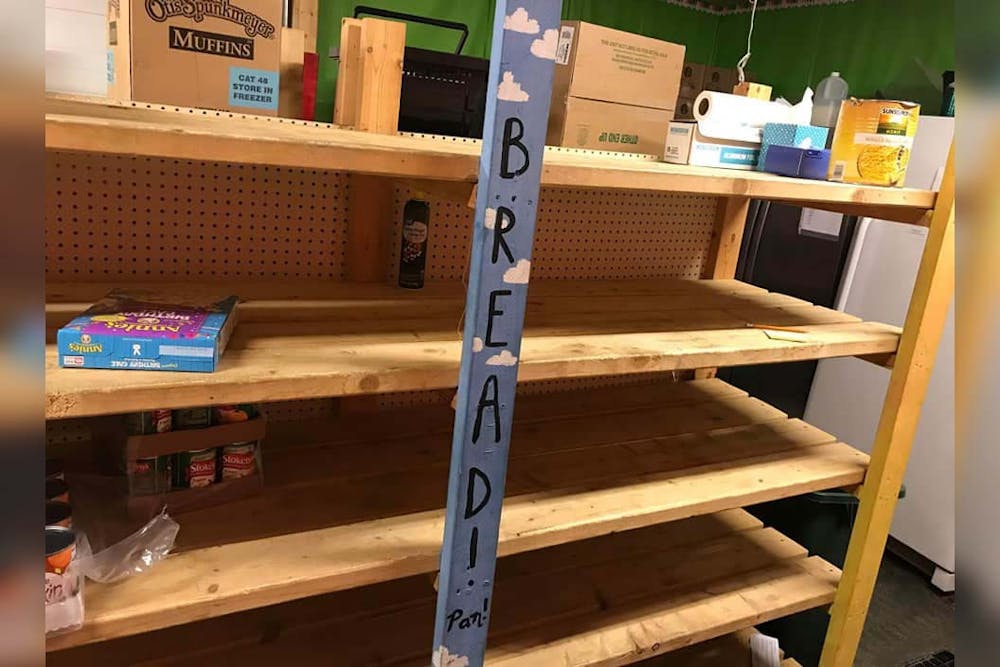Local food pantries are experiencing shortages after the pandemic increased demand and decreased donations.
“We ran out of food for the first time a couple of weeks ago,” Cindy Chavez, the director of Pantry 279, said in an email. “We have come close a few times, but never ran out.”
Chavez said the staff started packing boxes very lightly since the new year because the demand more than doubled during the pandemic, going from serving approximately 3,500 people a month to between 6,000 and 8,000 people a month.
Chavez said more than half of their inventory comes from the Hoosier Hills Food Bank, but a considerable amount also comes from private donations, some cash donations and Midwestern Food Bank contributions.
“No one is safe in this world we are in,” Chavez said in an email. “Rising costs of food, shortages, lack of labor, so many challenges face today's families.”
Recalling the recent shortage, Chavez said the Ellettsville community responded immediately.
She said that organizations, schools, churches bought several items to donate and sent cash instantly.
“Very much restores your faith in humanity,” Chavez said in an email.
Monroe County United Ministries provides another local food pantry that depends on donations to serve the community. The pantry is open from noon-4 p.m. on Mondays, Tuesdays, Thursdays and Fridays.
Erin Vaughn, MCUM self-sufficiency coach and director, said the pantry mostly runs on donations, but the center will buy food with grant funds when inventory is low.
Clients can come and shop for their groceries and other items such as cleaning supplies and hygiene products once every month, Vaughn said.
“It’s hard to manage because you want to be able to give clients everything you can, but you also may not have the funds to do so,” Vaughn said.
Vaughn said the facility saw more donations around the holiday season and this time of year, because of tax returns.
However, the pandemic and other external factors like inflation have increased prices and decreased donations, Vaughn said.
“We've run low before but never to the point where we felt like we completely ran out of almost everything; at least not since I've been here,” Vaughn said.
Vaughn said she hopes the staff finds a way to manage this problem of increased need and decreased ability to donate. She said the community is doing the best they can to support the pantry.
“I feel like every time we do put a call out or ask for certain things, especially on our Facebook group, we receive some sort of response,” Vaughn said. “It may not be a lot, but I think people are contributing what they can and that is incredible, especially when they don't have to do that.”
United Ministries now has an online ordering and delivery system to provide food to those in quarantine or homebound for other reasons.
“I can't remember who started it, but I would see people come weekly and stop at this little shelter that we have and contribute,” Marta Hall, the president of the Bloomington Housing Authority Residents Council, said. “People put food and books and other activities for kids in there, just to help out.”
She said the pantry gets a weekly delivery from Hoosier Health Food Bank on Thursdays and volunteers help her categorize the groceries into sections.
“We get some donations but not a lot,” Hall said. “Recently, we got a mini food grant, but we haven't been able to utilize it because we don't have transportation to go pick up the food.”
She said having a designated shuttle for the pantry would help with food pickups and taking residents shopping at healthy grocers and farmers markets for fresher foods.
“Bloomington is such a wonderful town, and I just want people to thrive here,” Hall said.




